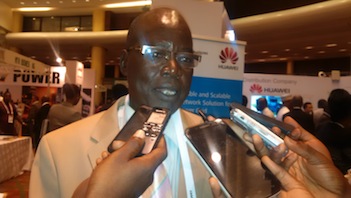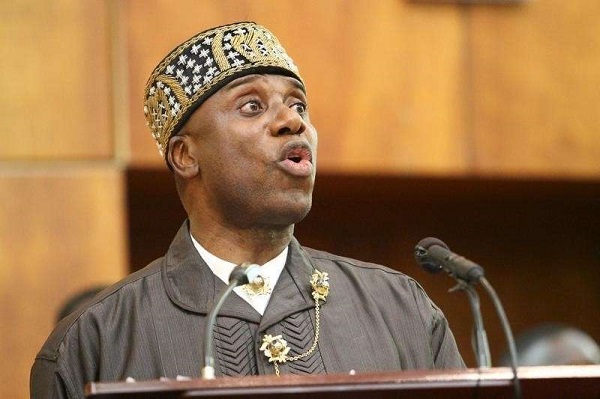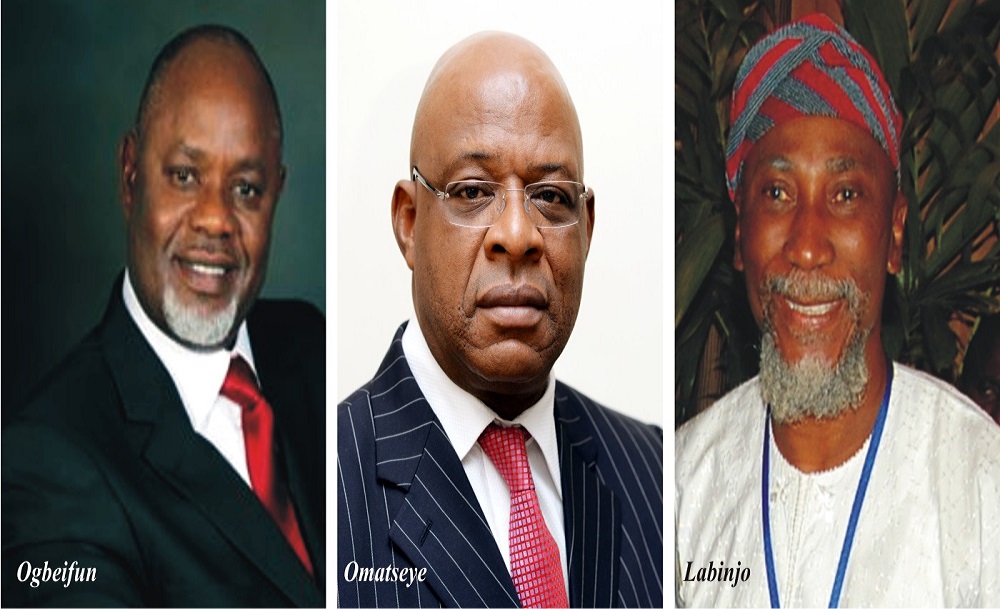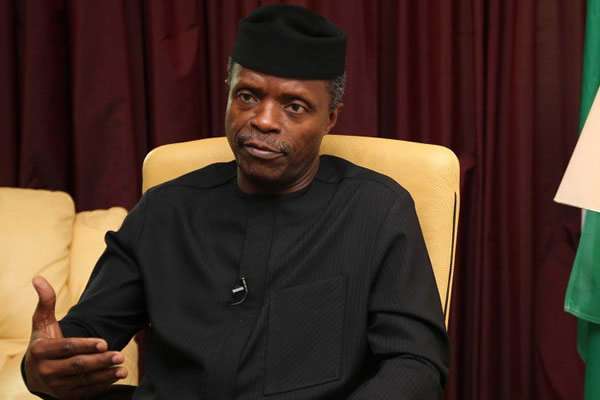Blue Economy: Over $800 Million Expended On Fish Importation Annually
· Nigeria loses 50billion Naira to illegal fishing
· CRFFN Avoids Litigations With New Electoral Guidelines
By Kenneth Jukpor & Oyeniyi Iwakun
As Federal Government intensifies efforts to move the nation out of its mono-economic status, experts have revealed that Nigeria can save over $800 million being spent on the importation of fishes annually, if the nation’s deep ocean resources are optimally developed and exploited.
In an exclusive chat with MMS Plus in Lagos recently, the Director/Head, Fisheries Resources Department, Nigeria Institute for Oceanography and Marine research, Lagos, Dr. (Mrs.) Parcy Ochuko Obatola said Nigeria is naturally endowed with a lot of marine resources but these resources have been left untapped over the decades thereby leading to huge economic loss.
According to her, research has it that Nigeria consumes about 2million metric tons of fishes every year but can only produce less than 800,000 metric tons domestically thereby necessitating the importation of about 1.8 million metric tons with the cost implication of over $800 million even as she noted that over 70% of the fishes domestically supplied are produced by small scale fishermen whose activities litter the coast line.
She said, “right now when we look at the demand and supply of fishes in Nigeria, there is still a huge deficit. The demand is almost 3million metric tons per annum, the supply is about two million metric tons and there is still a deficit of over one million including those imported and those produced within this country. We are producing about 800,000 metric tons in Nigeria. So we can see the reason we actually need to carry out activities when it comes to blue economy.”
Mrs. Obatola who noted that most of the fisheries that are exploited in Nigeria are done at the inshore waters and have consequently put a lot of pressure on the resources and negatively impacted the ecosystem via indiscriminate pollution, water contamination and other forms of illegal, unregulated and unreported fishing otherwise known as IEUs, which have translated into a situation where there are lesser catches and smaller sizes of fishes, called on the government and other stakeholders to help ensure that the activities of the fishermen are regulated and managed while the deep ocean resources are tapped to help reduce pressure on the inshore waters.
The research expert further explained that various surveys conducted by the institute have shown that some rare species of fishes and other marine resources are in the Nigerian territorial waters especially at the deep oceans and practicable recommendations on how they can be exploited for the economic benefits of the nation have been forwarded to the federal government, hence the purchase of the deep water vessel, even as she argued that Nigeria could be losing about N50 billion yearly to illegal fishing and other unregulated activities of intruders at the deep oceans.
“We have carried out surveys and found out that there are resources in the deeper waters that the fishing industry can exploit so that the inshore waters would have a respite, if the pressure on them is reduced. We have other resources out there that can be exploited.
“As I am talking to you right now, Nigeria as a nation is not exploiting our Tuna resources but that doesn’t mean that people are not exploiting it. People come from other places to exploit them on our territorial waters.
“Apart from that, we also have what is called harima-bondi. It is the kind of fish that can replace the imported sardine; in fact it was canned in this institute just to let the industry know what can be done. Tuna was also canned in this institute years back so that the industry can go further to exploit other resources out there.” She said
She also explained that part of the resources present in the nation’s deeper waters is the mesopelagic resource which is very useful for the production of fish meals noting that the major problem that has hindered aquaculture from being what it should be in Nigeria is the input; and fish meals constitute about 70% of the running cost of an aquacultural establishment.
“Feed is very pertinent because a crucial component of that feed is fish meal and as we say right now, fish meal is mainly imported to Nigeria. So, that’s another way of getting our money out via capital flight if we are able to substantiate it now that we know we have it. Our duty is to look at the quantum because another value chain that the fishing industry can go into is getting the mesopelagic resource and turning it to the fish meal that will now be incorporated into the fish feed that the aquaculture sector uses.
“We actually have a lot of resources but it is not about just having the resources. We need to work on how we maximize or exploit them so that it will be useful for us in the country and also the artisanal sector. There is enough that can be done and we are playing our own role.” She said.
She also pointed out that part of the challenges confronting deep ocean fishery in Nigeria is the inability of Nigerians to outgrow the quick coin mentality where people expect expedient gains immediately they make investments, an attitude she said would not be applicable in the fishing sector because it is a long term investment that is capital intensive.
“I think that has always the major issue with the industry because it is not the kind of trawlers that you use in inshore waters that you use there. You need bigger vessels there and when you talk about bigger vessels, of course you are talking about bigger money.” She said
While acknowledging that some efforts have been put in place by the government, Mrs. Obatola believes that more can still be done in terms of capacity building to ensure the sustainable usage of the deep ocean resource for economic growth as the blue economy concept connotes.
CRFFN Avoids Litigations With New Electoral Guidelines
In a bid to avoid the impending litigation from freight forwarding associations, after extensive meetings with associations and the Nigerian Shippers’ Council (NSC), the Council for the Regulation of Freight Forwarding in Nigeria (CRFFN) is set to issue improved guidelines for the upcoming elections into the CRFFN Governing Board.
This development is timely as some associations members were gearing up to begin a myriad of litigations against the Council over certain clauses in the electoral guidelines published without the input of the associations.
Section 6 of the initial CRFFN electoral guidelines which bothered on the eligibility to contest for any position had some controversial areas such as Part ‘C’ “the aspirant must be of good character, not controversial, neither gone to Court nor waged press war against the Federal Ministry of Transportation, CRFFN, associations of freight forwarders and their officials” and Part ‘D’ which stated that such individual must not be holding an elected or appointed position in the executive committee of an association of freight forwarders.
Another major area of dispute was the qualification for voting as some associations insisted on corporate outfit owners while others opted for individual registered members of CRFFN.
Recall that the penultimate week, the Association of Nigerian Licensed Customs Agents (ANLCA) had agreed after a secret National Executives Committee (NECOM) meeting to obtain court injunction to stop the elections before the timely visit of the CRFFN Registrar to the agencies last week to deliberate on the controversial aspects of the guidelines.
When contacted by MMS Plus to comment on the areas which needed rejigging, the CRFFN Registrar, Mr. Mike Jukwe declined, however, he expressed confidence that all parties would be satisfied with new electoral guidelines to be issued on Monday, May 7th barely nine days to the elections.
Meanwhile, the Founder of National Association of Government Approved Freight Forwarders (NAGAFF) Dr. Boniface Aniebonam has said that NAGAFF was fully prepared for the upcoming CRFFN elections.
The NAGAFF Founder who was speaking during a press briefing at the NAGAFF headquarters on Friday, last week, instructed the President of the association to disburse the requisite funds to ensure that NAGAFF registers as many members as possible to have the numerical advantage during the elections.
Dr. Aniebonam also stressed that NAGAFF would work assiduously to ensure that there would be mo loopholes for rigging during the elections which holds on May 16th in Abuja.








